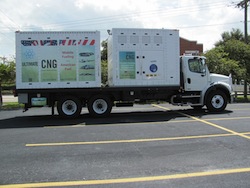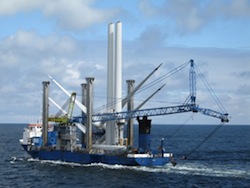Researchers at Oregon State University (OSU) are looking back to life during the dinosaur age and studying the role diatoms could play in algae-based biofuel production. Diatoms are tiny marine pre-historic life forms and can simultaneously produce biofuels as well as semiconductors, biomedical products and health foods. The technology has moved out of a science fiction movie and landed in a fast-paced drama, and with the help of a $2 million, four-year grant from the National Science Foundation, hopefully will become an everyday reality.
Researchers believe, in theory, that the microscopic algae will be able to utilize some of the most abundant and affordable materials on Earth, such as silicon and nitrates, add a bit of sunshine, a few drops of water and  carbon dioxide and you have the recipe for affordable products. Using a similar concept as the “biorefinery, this process is called the “photosynthetic biorefinery.”
carbon dioxide and you have the recipe for affordable products. Using a similar concept as the “biorefinery, this process is called the “photosynthetic biorefinery.”
“This NSF program is intended to support long-range concepts for a sustainable future, but in fact we’re demonstrating much of the science behind these technologies right now,” said Greg Rorrer, an OSU professor and head of the School of Chemical, Biological and Environmental Engineering. Rorrer has studied the remarkable power of diatoms for more than a decade.
Rorrer continued, “We have shown how diatoms can be used to produce semiconductor materials, chitin fibers for biomedical applications, or the lipids needed to make biofuels. We believe that we can produce all of these products in one facility at the same time and move easily from one product to the other.”
While researchers already know that biofuels and other products can be made from algae, often times the cost is prohibitive. OSU researchers believe that this process could significantly reduce cost allowing biofuels to make more economic sense. As part of the work at OSU, researchers plan to develop mathematical models so that various options can be tested and computers used to perfect the technology before actually building it.
“Regular algae don’t make everything that diatoms can make,” Rorrer added. “This is the only organism we know of that can create organized structures at the nano-level and naturally produce such high-value products. With the right components, they will make what you want them to make.”
![]() ZimmPoll is sponsored by Rhea+Kaiser, a full-service advertising/public relations agency.
ZimmPoll is sponsored by Rhea+Kaiser, a full-service advertising/public relations agency.










